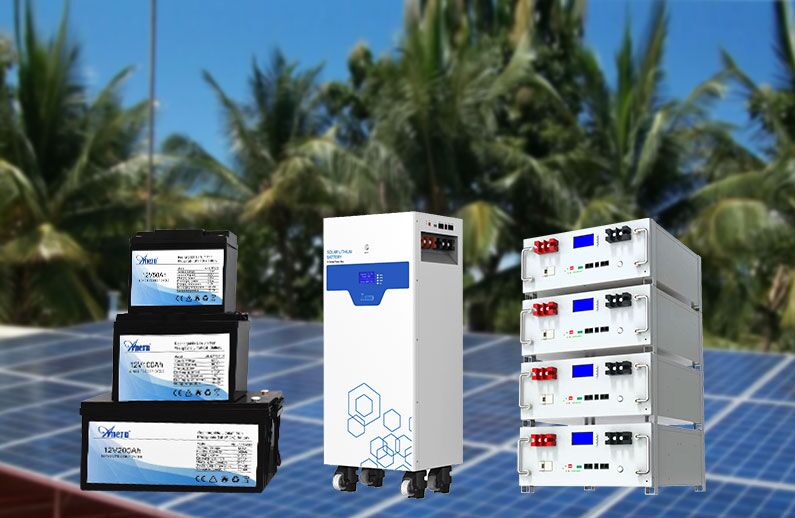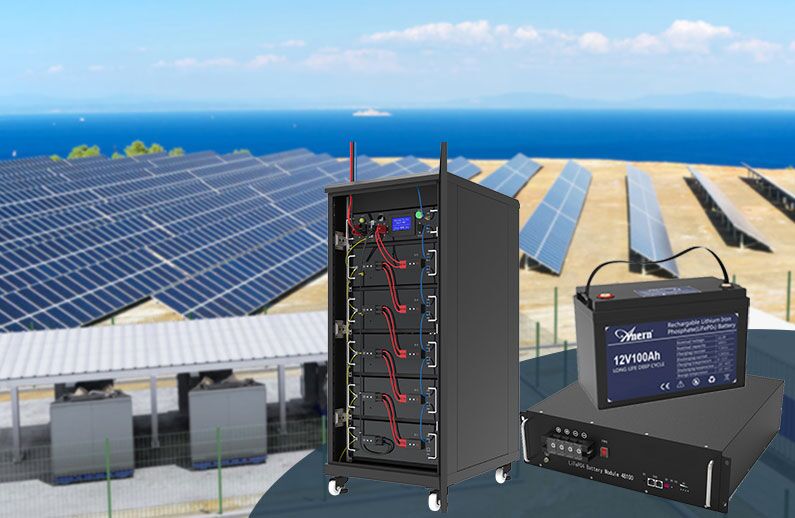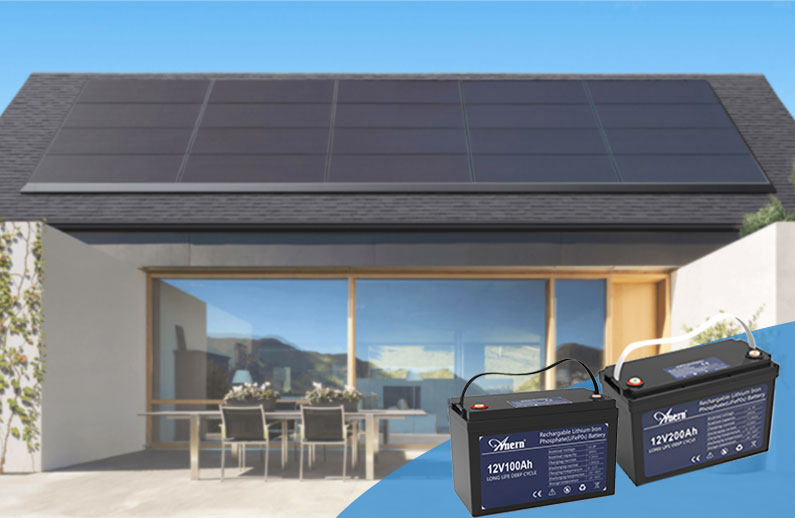How to Choose Energy Storage Solar Batteries
May 16, 2025
As solar energy becomes a popular choice for residential, commercial, and industrial applications, choosing the right energy storage battery is crucial. But with so many options available, how do you ensure you are selecting the best battery for your solar energy system? This guide will help you understand how to choose the right energy storage solar battery, focusing on 12V LiFePO₄ lithium batteries, rack-mounted lithium iron phosphate batteries, and corrosion-resistant lithium batteries.
Identifying Your Solar Energy Storage Needs
Before diving into battery specifications, you must first assess your energy storage needs:
Application Type: Are you using the battery for a home solar system, an RV, a boat, or a large-scale commercial installation?
Power Capacity: How much energy do you need to store?
Space Availability: Do you have enough room for large batteries, or do you need a compact solution?
Environmental Conditions: Will the battery be exposed to extreme temperatures, moisture, or corrosive environments?
Understanding these factors will help you make an informed choice.
Why Choose 12V LiFePO₄ Lithium Batteries?
12V LiFePO₄ lithium batteries are among the most popular options for small-scale solar energy storage due to their:
High Energy Density: They store more energy in a compact size, making them ideal for off-grid solar systems, RVs, and marine applications.
Long Cycle Life: A lifespan of 2,000 to 5,000 cycles, which is significantly higher than traditional lead-acid batteries.
Enhanced Safety: LiFePO₄ batteries are known for their thermal and chemical stability, reducing the risk of overheating or explosion.
Lightweight Design: Making them easy to install and transport.
Best Use Cases:
Off-grid solar systems
Backup power for RVs and boats
Portable solar generators
Advantages of Rack-Mounted Lithium Iron Phosphate Batteries
For larger installations, such as residential, commercial, or industrial energy storage, rack-mounted lithium iron phosphate batteries (LiFePO₄) are an excellent choice.
Modular Design: They can be stacked and expanded as your energy needs grow.
Space-Efficient: Perfect for installations in data centers, telecommunication base stations, and solar farms.
Easy Maintenance: The rack-mounted design allows for quick access for inspection and replacement.
Advanced Battery Management System (BMS): Ensures safe and efficient battery operation, monitoring voltage, temperature, and charging status.
Best Use Cases:
Residential solar energy storage (wall-mounted or cabinet design)
Commercial solar installations (hotels, factories, shopping malls)
Data centers and telecommunications facilities
Why You Need Corrosion-Resistant Lithium Batteries
If your solar energy storage system will be used in a harsh environment — such as coastal areas, industrial zones, or marine applications — corrosion-resistant lithium batteries are a must.
Protective Coatings: These batteries feature anti-corrosion coatings on the battery casing and terminals.
Weatherproof Design: Resistant to humidity, salt spray, and acidic environments.
Longer Lifespan: Enhanced durability ensures reliable performance even in challenging conditions.
Best Use Cases:
Offshore solar energy systems
Marine solar power systems (boats, yachts)
Industrial solar systems exposed to chemical fumes
Key Factors to Consider When Choosing Solar Energy Storage Batteries
Regardless of the type of battery you choose, keep these critical factors in mind:
1. Battery Capacity (Ah/kWh)
Choose a battery with enough capacity to meet your daily energy consumption needs.
2. Cycle Life
Look for a battery with a high cycle life (2,000+ cycles), which ensures longer-lasting performance.
3. Warranty and Support
Select a supplier that offers a solid warranty (at least 2-5 years) and reliable customer support.
4. Battery Management System (BMS)
Ensure the battery has an advanced BMS for real-time monitoring, overcharge protection, and temperature control.
5. Environmental Resistance
If you are installing the battery in a harsh environment, prioritize corrosion-resistant models.
How to Choose a Reliable Supplier
When purchasing a compact 12V LiFePO₄ lithium battery, a rack-mounted lithium iron phosphate battery, or a corrosion-resistant lithium battery, always:
Check the supplier’s certifications (ISO 9001, CE, UL, IEC).
Read customer reviews and testimonials.
Request a product datasheet to understand the battery’s specifications.
Confirm warranty terms and after-sales support.
By following these guidelines, you can confidently choose a reliable solar storage battery that meets your needs.
Making the Right Choice
Choosing the right solar energy storage battery is essential for maximizing the efficiency and safety of your solar power system.
Whether you are looking for a compact 12V LiFePO₄ lithium battery, a scalable rack-mounted LiFePO₄ battery, or a durable corrosion-resistant lithium battery, understanding your specific needs and selecting a trusted supplier will ensure long-lasting, reliable energy storage.




 Network Supported
Network Supported